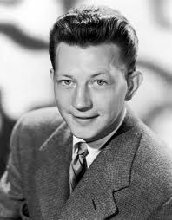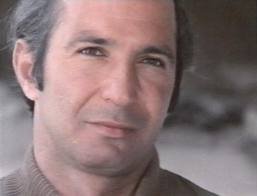Good 48º lightly scattered clouds sunny morning.
Yesterday we started out dark cloudy..........
Then the dark clouds left and we had white fluffy clouds..........
Later by late afternoon most of the clouds left and we topped at 89º.
Picture of the Day...crazy car!
Interesting about Dodge City Kansas......
The first settlement in the area that became Dodge City was Fort Mann, built by civilians in 1847. At that time the territory was part of Mexico, and the fort was built to provide protection for travelers on the Santa Fe Trail. Fort Mann collapsed in 1848 after an attack by Natives. In 1850, the U.S. Army arrived to provide protection in the region and constructed Fort Atkinson on the old Fort Mann site. The army abandoned Fort Atkinson in 1853. Military forces on the Santa Fe Trail were re-established farther north and east at Fort Larned in 1859, but the area remained vacant around what would become Dodge City until the end of the Civil War. In April, 1865, the American Frontier Wars in the West began heating up, and the army constructed Fort Dodge to assist Fort Larned in providing protection on the Santa Fe Trail. Fort Dodge remained in operation until 1882.
The town of Dodge City can trace its origins to 1871, when rancher Henry J. Sitler built a sod house west of Fort Dodge to oversee his cattle operations in the region, conveniently located near the Santa Fe Trail and Arkansas River, and Sitler's house quickly became a stopping point for travelers. Others saw the commercial potential of the region with the Santa Fe Railroad rapidly approaching from the east. In 1872, Dodge City was staked out on the 100th meridian and the legal western boundary of the Fort Dodge reservation. The town site was platted and George M. Hoover established the first bar in a tent to serve thirsty soldiers from Fort Dodge. The railroad arrived in September to find a town ready and waiting for business. The early settlers in Dodge City traded in buffalo bones and hides and provided a civilian community for Fort Dodge. However, with the arrival of the railroad, Dodge City soon became involved in the cattle trade.
A new route known as the Great Western Cattle Trail or Western Trail branched off from the Chisholm Trail to lead cattle into Dodge City. Dodge City became a boom town, with thousands of cattle passing annually through its stockyards. The peak years of the cattle trade in Dodge City were from 1883 to 1884, and during that time the town grew tremendously. In 1880, Dodge City got a new competitor for the cattle trade from the border town of Caldwell. For a few years, the competition between the towns was fierce, but enough cattle were available for both towns to prosper.
The normal annual mean temperature in Dodge City is 55.4 °F, while the normal monthly daily average temperature ranges from 32.2 °F in January to 79.6 °F in July. The high temperature reaches or exceeds 90 °F an average of 67 days a year and reaches or exceeds 100 °F an average of 13 days a year; the last year that failed to reach 100 °F was 1958. The minimum temperature falls to or below 0 °F an average of 3.0 days a year. The highest officially recorded temperature was 111 °F on June 27, 2012, while the lowest temperature officially recorded was −26 °F on February 12, 1899. The record cold daily maximum is −13 °F on January 13, 1875, and conversely, the record warm daily minimum is 81 °F last set July 12, 1978.
Meat packing is the primary industry in Dodge City. Cargill Meat Solutions and National Beef both operate large facilities in the city. The city also hosts farm implement manufacturing and serves as a supply center for area agriculture. Livestock-raising is a major activity while wheat and sorghum are the area's main crops. In addition, a local tourism industry, including a casino resort, has developed to capitalize on Dodge City's history as an Old West cow town. The service sector accounts for much of the rest of the local economy.
Starting in the 1870s, the violent episodes of early Dodge City history, particularly the exploits of Wyatt Earp, attracted national media attention. National news coverage of the 1883 Dodge City War civil strife fueled public perceptions of frontier turmoil and established Dodge City as the "Sodom of the West" in the public consciousness. Gunfighters and lawmen such as Earp and his brothers and partners became celebrities, and sensationalized versions of their activities entered period popular culture as the subject of dime novels. Over time, the level and scale of the violence in early Dodge City were significantly embellished, becoming the stuff of legend. This trend continued into the 20th century, particularly after the 1931 publication of Stuart N. Lake's book Wyatt Earp: Frontier Marshal. Regarded in American folklore as the quintessential rough and rowdy Old West frontier town, Dodge City served as the setting for numerous works of Western-themed media, including later popular films and television series.
From Mr. Food
The creamy chicken filling isn't the only thing that "bubbles up" in this Easy Chicken Bubble Bake. When you set it to bake with the biscuits on top, you'll find that the whole casserole "rises" to the occasion. What's the occasion? A fantastic evening dinner!
- 2 (10-1/2-ounce) cans cream of chicken soup, undiluted
- 1 cup milk
- 1/2 teaspoon dried thyme
- 1/2 teaspoon salt
- 1/4 teaspoon black pepper
- 1 (16-ounce) package frozen chopped mixed vegetables (broccoli, cauliflower, and carrots)
- 3 cups shredded cooked rotisserie chicken
- 1 (12-ounce) can refrigerated biscuits, each biscuit cut into quarters
- 2 tablespoons butter, melted
- Preheat oven to 375º. Coat a 9- x 13-inch baking dish with cooking spray.
- In a large bowl, combine soup, milk, thyme, salt, and pepper; mix well. Stir in vegetables and chicken. Place mixture in baking dish.
- Bake 15 minutes, then remove from oven.
- Meanwhile, in a medium bowl, combine biscuits and butter; toss until evenly coated. Arrange biscuits over chicken mixture. Bake 15 to 18 more minutes, or until biscuits are golden and casserole is bubbly.
***Wanna mix up the vegetables? Go ahead -- use your favorites! Anything from peas and corn, to green beans and roasted peppers will work great. And to fancy it up, garnish with some chopped parsley.
Historically this date......
2003 – An electricity blackout cuts off power to around 500,000 people living in south east England and brings 60% of London's underground rail network to a halt.
And births this date include....
... working on wife #5 !!!

All I know. Nuff said. Have a good Sunday. Ciao.
xo Sue Mom Bobo
On August 28th, National Red Wine Day ushers in the flavors of fall. As the grapes ripen and signal a time for warmer sips, wine drinkers know reds mean tailgating and spicy foods.
Throughout the year, wine days afford us the opportunity to taste and learn about the differences between wines. Earlier this month National Prosecco Day gave us the last bubbly rays of summer. Now we savor the best of the season with Merlot, Cabernet Sauvignon, Pinot noir, Port, and Syrah.
Red wine varietals produce deep ruby reds as well as subtle ambers and browns. Their beautiful colors hint at the coming change in the season. With that, we can look for delicious menu changes, too. Besides, what better way to enjoy a great bottle of wine than by pairing it with excellent company and food. Restaurants around the country will be happy to oblige throughout the celebration. Be sure to check out the latest menus from appetizers to desserts.
Don’t fear the red, either. Even if you prefer a sweeter wine, there’s a red for you. Also, blends offer a way to enjoy the best of both wine worlds. And don’t fret. Red, red wine pairs well with salad, steak, dessert and so much more.
If you’re hesitant, attend a wine tasting. There you will learn more each time and find the wine that fits not only your palate but your cooking style, too.
HOW TO OBSERVE
Pour a glass or two of delicious red wine.
NATIONAL RED WINE DAY HISTORY
In 2014, Jace Shoemaker-Galloway created National Red Wine Day.
Red Wine FAQ
Q. How many calories in a glass of red wine?
A. One 5 ounce serving of red wine contains 125 calories.
Q. Is a rosé wine a red wine?
A. Red grapes are used to make rosé wines. When making red wines, the skins remain in contact with the pulp and juice long enough to produce red wine. The production of rosé is similar. The juice and pulp remain in contact with the skins for a lesser amount of time giving the wine its rosy color.
Q. What are the names of some red wines?
A. Merlot, Pinot Noir, Zinfandel, Bordeaux, Chianti, and Rioja are just a few red wines from around the world.




















